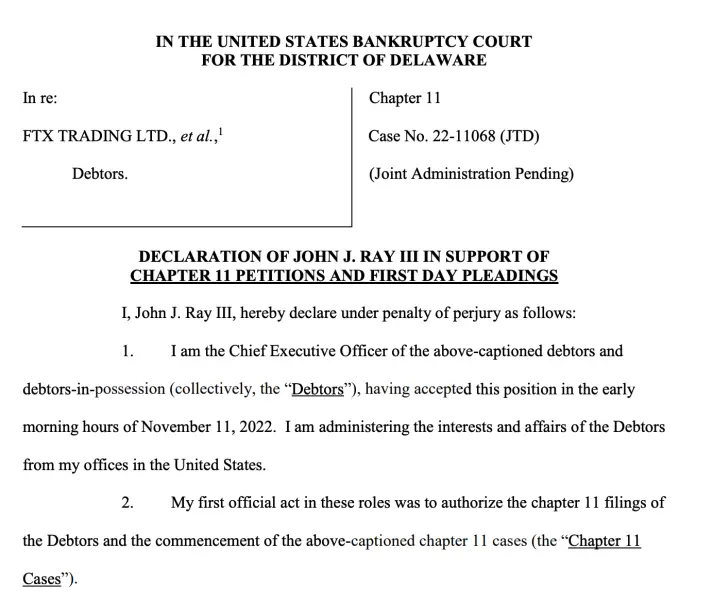
The game Monopoly by Hasbros, Inc. was a simple real estate board game in which players bought and sold property cards. The underlying economic principles of finance behind the game represented simple truths about how to invest successfully. You could only leverage in ONE LAYER by mortgaging your properties. For debt or incurred expenses, players could leverage their properties and receive a small mortgage loan from the bank.
There was only one currency and its value was fixed. Like the fundamental concept behind blockchain-based money (cryptocurrency), there was always a finite amount. Investors/players generated cash flow to develop their investments and were limited by a finite set of rules. Monopoly represented a purer, safer time.
Monology games at my house could last hours. If we took a break, we carefully tabulated everyone’s cash and assets on a trusty piece of paper. Upon our return, everything remained the same: all values were set and all assets clearly identified.
Unfortunately, the real world is a bit more complicated.
Let’s say we’re playing a game of Monopoly with Sam Bankman-Fried and his cabal of cohorts.
On one side, you start off with the same amount of funds that anyone else does, a fixed amount. You roll and go through life, earning income as you pass ‘Go’. As time goes, you accumulate enough from your income to invest in properties to rent out to other passerbys — other players in the economy. You may make savvy choices or develop a key area so that when players roll and land on your properties, you’re earning.
On the other side, you’re confronted with a team with the capability to move billions of dollars in seconds, changing the value of any currency they offer you. They say, “if you give us your Monopoly money (your hard-earned cash), we’ll give you BTC, ETH, and FTT. Not only that, you can leverage your assets with us to gain more FTT and access to every cryptocurrency we can get our hands on.” This is when historically — if you’ve played Monopoly — you catch a player sneaking a $500-orange-bill out of the bank.
Only this time, your Monopoly opponent, the team of coders liberally using prescription drugs based in the Bahamas, says, “Hey, I’m the bank. Oh, I’m the realtor too. Oh, I’m the money printer as well. Huh? An accountant? What’s that?”
So, you blink casually, then you roll the dice, landing on Boardwalk. Now, in the game, Boardwalk and Park Place are a set of the most valued properties on the Monopoly map. The purchase of Boardwalk costs you $400 in Monopoly money.

You hand over $400 to the Afro’d-out MIT grad in front of you (Sam Bankman-Fried) and he says, “Okay, now, instead of giving you the deed to Boardwalk, which I am legally mandated to by the rules of this game, I’m not going to do that.”
“Instead, I’ll give you $200 dollars worth of FTT and $200 dollars worth of the down payment to Park Place in BTC. You can get rich too! Look at me! I am a philanthropist and math-whiz kid. I attest to being a classical utilitarian who seeks pleasure only, and no pain. If you invest with me, we’ll help human society for the betterment of all people because cryptocurrency is the way.”

(SBF then casually palms your $400 dollars and sends it on its merry way to another bank with even more money — in return, he’s provided with options for glory in the case that bitcoin value just so happens to hit $100,000).
Returning to you, he smiles satisfactorily and reports,
“Now, if my company does well in the future and by owning stock in our company in the form of a token, you’ll be rich!! To the moon APES!”
This is complete horseshit.
Changpeng Zhao, now known as “CZ” in the crypto world, recently offered to step in to save FTX’s insolvency issues, but after looking at a gaping hole in FTX’s shotty accounting documentation, withdrew, tweeting as he backpedaled:
Two big lessons:
1: Never use a token you created as collateral.
2: Don’t borrow if you run a crypto business. Don’t use capital “efficiently”. Have a large reserve.
Binance has never used BNB for collateral, and we have never taken on debt.
Changpeng Zhao, CZ on FTX takeaways, the founder of Binance Holdings Ltd., the largest crypto exchange today
Real people who have red numbers glaring at them from the FTX app and potentially across the graveyard of 130+ other bankruptcies will be lucky to receive five cents on the dollar.
Move Forward, Enron Champion
In the official FTX Trading LTD., et al., Chapter 11 bankruptcy filing affidavit, John J. Ray III begins the monumental task of restructuring FTX. Having restructured Enron, and with mass media denoting the FTX implosion as “worse than Enron,” John J. Ray III has zero confidence in any balance sheet that’s been touched by the inner circle of FTX’s once 200+ strong employee base. Essentially, Ray sees SBF and his gang of children as grossly incompetent in spearheading what was supposed to be a reliable institution as people explore new investment options in cryptocurrency.

“Never in my career have I seen such a complete failure of corporate controls and such a complete absence of trustworthy financial information as occurred here.
From compromised systems integrity and faulty regulatory oversight abroad to the concentration of control in the hands of a very small group of inexperienced, unsophisticated, and potentially compromised individuals, this situation is unprecedented.”
John J. Ray III, the Winston Wolfe of Financial Ruin
With modern macroeconomics subject to giant Ponzi schemes, real people lose out.
“Some employees kept their life savings on FTX,” an anonymous FTX employee told CoinDesk.
“We trusted that everything was fine.”
Here are Jon Wu’s and Trung Phan‘s bullet points on the FTX implosion:
- No corporate governance (Many entities, for example, never had board meetings. The FTX Group did not maintain centralized control of its cash. They didn’t even keep a running list of all their bank accounts!)
- No functioning HR (The entire FTX Group didn’t have any employee management whatsoever and was incapable of furnishing: 1) a list of employees; 2) the terms of their agreements; and 3) each employee’s status)
- No functioning money management (Employees were paid via online chat, and managers “approved disbursements by responding with personalized emojis.” Meanwhile, SBF took a $1B personal loan.)
- High level of secrecy (SBF used Signal to hide all of his decisions and communications with employees. Also, he created a “back door” to move funds between FTX and FTX’s sister hedge fund Alameda Research without alerting his auditor)
- SBF says that FTX customer deposits were mismanaged due to “messy accounting”. Per SBF, customers sent money to FTX and sometimes it just went straight to Alameda Research; it’s either gross incompetence or straight-up fraud — either way, it’s illegal.
- SBF says that one motivation for his virtue-signaling — like his association with effective altruism — is because “woke westerners” have to “say all the right shibboleths…so everyone likes us…”
Here’s Milky Egg’s estimate on how FTX lost $15.5B — the largest and fastest wealth-wipeout in history.
- $1.5B: Over the summer, FTX bailed out crypto lenders (Voyager/BlockFi) that were hurt hard by a big crypto sell off. FTX did the bailout in part to save its own hedge fund — Alameda Research — which had exposure.
- $1B: Terra Luna blew up after its algorithmic stablecoin failed. FTX had exposure.
- $1B: Other algorithmic stablecoin crashes.
- $2B: Funds spent as collateral support for two FTX-backed tokens (Serum, FTT)
- $2B: A string of VC investments (a lot of overpaying at the top of the cycle)
- $2B: Real estate, branding, other frivolous spending (eg. Larry David Super Bowl ad, naming the Miami Heat arena)
- $4B: The market cap of FTX exchange token FTT declining.
- $2B: Bad crypto bets.
Reported early on as a “hack”, $477m of customer deposits went missing in FTX’s convoluted balance sheets. Interestingly enough, Sam Bankman-Fried had built a backdoor into accounting using Bespoke programming and was able to edit balance sheets without alerting auditors (Reuters, 2022). In the end, it was the Bahaman government forcing FTX to take the customer deposits so that the government could seize them. Subsequently, jurisdiction on who those funds belong to or even where they’ll be held remains murky as hell.
Extras
- For a full reading, see the FTX Chapter 11 affidavit. For Jon Wu’s excellent summary, see Twitter.
- For the full financial breakdown by one of the greatest finance writers on the planet, see Matt Levine‘s work, FTX Had a Death Spiral.


